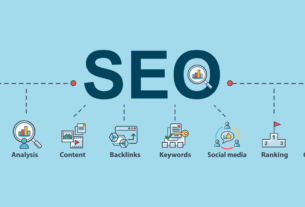In recent years, artificial intelligence (AI) has transitioned from a futuristic concept to an integral part of our daily lives and business operations. With a growing array of AI tools available, organizations and individuals alike are harnessing this technology to enhance productivity, drive innovation, and streamline processes. This article explores the different types of AI tools, their applications, and the implications they hold for various sectors.
What Are AI Tools?
AI tools are software applications that leverage machine learning, natural language processing, computer vision, and other AI techniques to perform tasks that typically require human intelligence. These tools can analyze data, recognize patterns, automate processes, Ai Tools and even interact with users through conversational interfaces.
Categories of AI Tools
- Data Analysis and Visualization: Tools like Tableau and Microsoft Power BI utilize AI to analyze large datasets, uncover trends, and create visualizations that help users make informed decisions.
- Natural Language Processing (NLP): Applications such as GPT-3 and Google’s BERT enable machines to understand and generate human language, powering chatbots, virtual assistants, and content creation tools.
- Automation Tools: RPA (Robotic Process Automation) tools like UiPath and Automation Anywhere allow organizations to automate repetitive tasks, improving efficiency and reducing human error.
- Computer Vision: AI tools in this category, such as OpenCV and TensorFlow, are used for image and video analysis, enabling applications in facial recognition, medical imaging, and autonomous vehicles.
- Predictive Analytics: Tools like IBM Watson and Google Cloud AI can analyze historical data to forecast future trends, aiding businesses in decision-making and strategic planning.
Applications Across Industries
The versatility of AI tools has led to their adoption across various sectors:
- Healthcare: AI tools assist in diagnostics, patient monitoring, and personalized medicine. For instance, machine learning algorithms can analyze medical images to detect diseases earlier and more accurately.
- Finance: Financial institutions use AI for fraud detection, risk assessment, and algorithmic trading. By analyzing transaction patterns, these tools can identify suspicious activities in real time.
- Retail: AI-driven tools help retailers optimize inventory management, personalize marketing strategies, and enhance customer experience through chatbots and recommendation systems.
- Manufacturing: AI tools streamline production processes through predictive maintenance, quality control, and supply chain optimization, reducing downtime and increasing efficiency.
- Education: Adaptive learning platforms utilize AI to personalize education based on individual student needs, helping educators provide tailored support and improving learning outcomes.
Benefits of AI Tools
- Increased Efficiency: AI tools automate time-consuming tasks, allowing employees to focus on higher-value activities. This leads to enhanced productivity and faster decision-making.
- Enhanced Accuracy: By reducing human error, AI tools improve the accuracy of data analysis and operational processes, which is critical in sectors like healthcare and finance.
- Cost Savings: Automating tasks and optimizing processes can lead to significant cost reductions for businesses, enabling them to allocate resources more effectively.
- Improved Customer Experience: AI tools enhance customer interactions through personalized recommendations and responsive support, leading to higher satisfaction and loyalty.
Challenges and Considerations
While the benefits of AI tools are compelling, there are also challenges to consider:
- Data Privacy: The use of AI tools often involves processing large amounts of personal data, raising concerns about privacy and data security.
- Bias and Fairness: AI systems can perpetuate existing biases present in training data, leading to unfair outcomes. Ensuring fairness in AI algorithms is a critical area of research and regulation.
- Job Displacement: The automation of tasks traditionally performed by humans raises concerns about job loss. However, many experts believe that AI will create new roles that focus on oversight and management of AI systems.
- Integration and Implementation: Adopting AI tools requires significant investment in technology and training, posing challenges for organizations, particularly smaller ones with limited resources.
The Future of AI Tools
As AI technology continues to evolve, the capabilities and applications of AI tools will expand. Innovations in areas such as quantum computing, advanced neural networks, and more sophisticated NLP models promise to enhance the performance and scope of AI applications.
Organizations must stay informed about these developments and adapt their strategies accordingly. The ability to leverage AI effectively will likely become a key differentiator in a competitive landscape.
Conclusion
AI tools are reshaping industries and improving the way we live and work. As they become more accessible and advanced, their potential to drive innovation and efficiency will only grow. By embracing these tools thoughtfully and ethically, we can unlock new opportunities and navigate the challenges they present, paving the way for a more efficient and equitable future.



